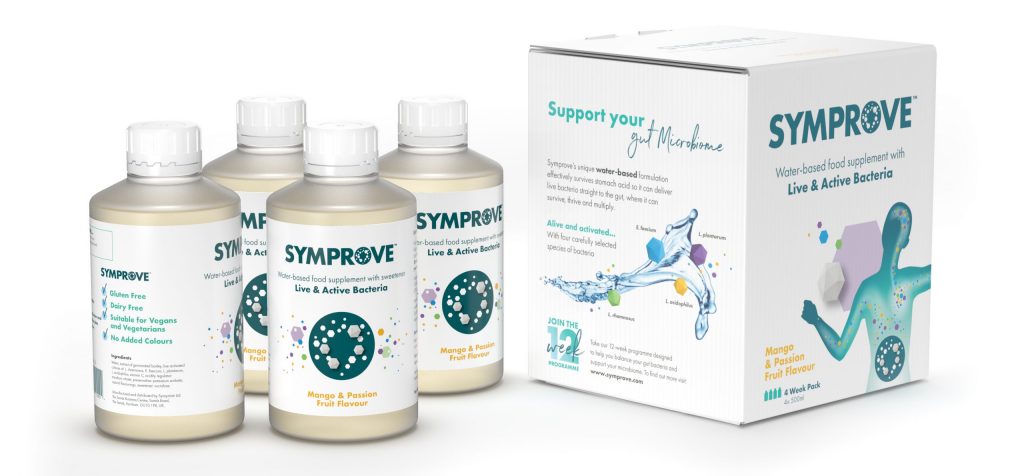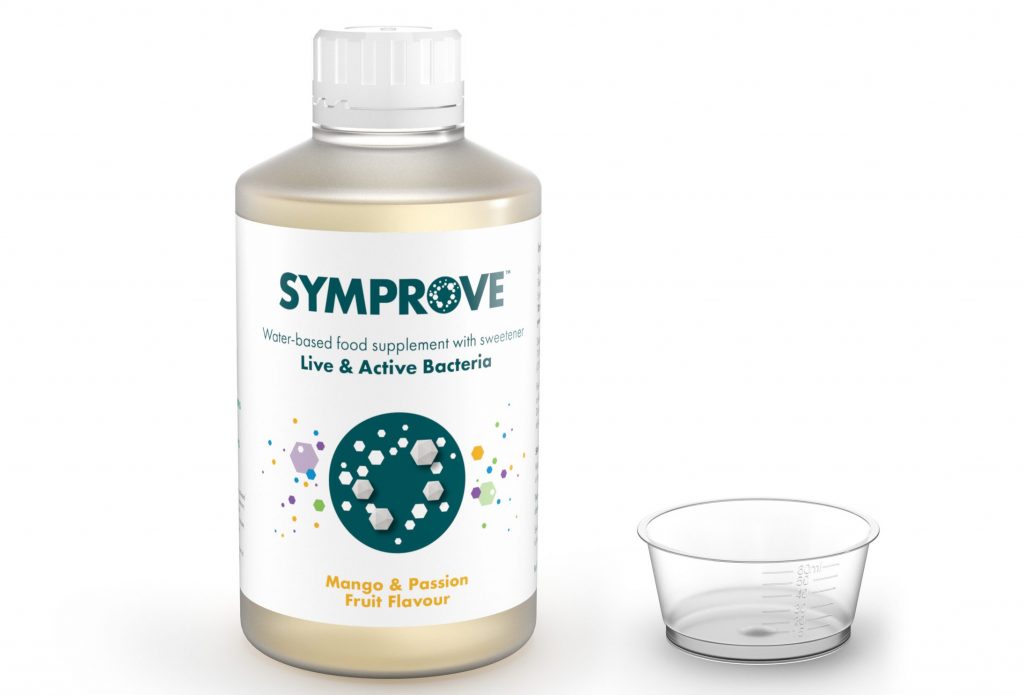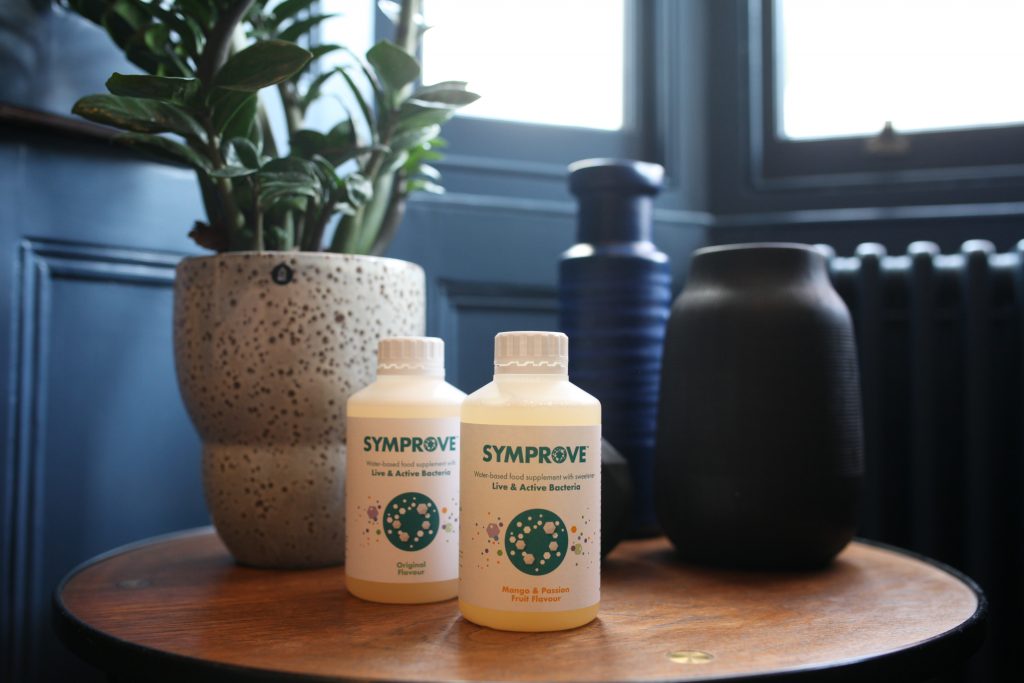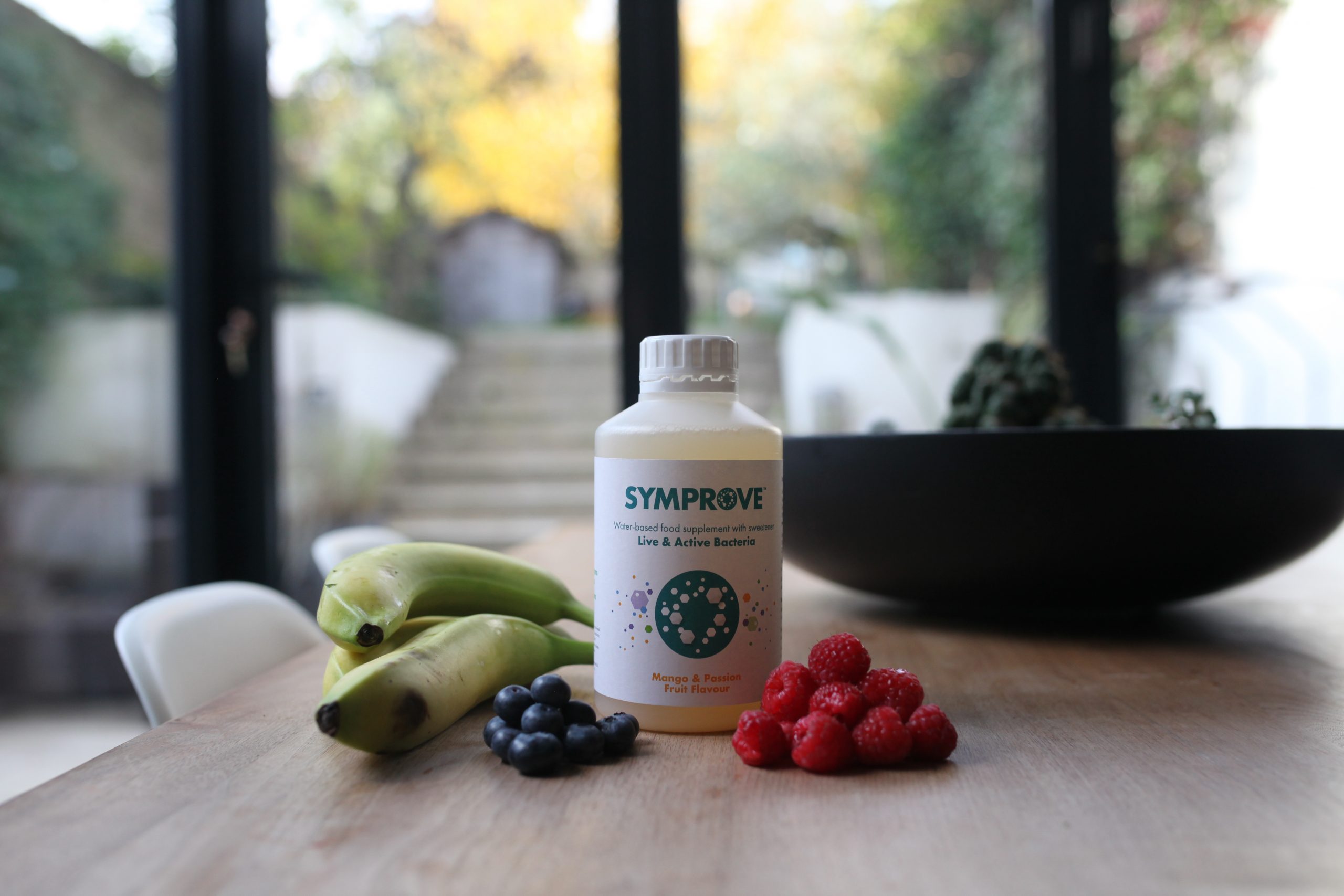Like all things that are ‘on vogue’, it starts with some form of celebrity endorsement – the definition of ‘celebrity’ now spanning to influencers and paid ambassadors which makes it all the more troublesome to decipher trustworthy products from the rest! We’re all familiar with the format – Love Island wannabes with slender bodies and an apricot hue around them, leaning to one side over a marble-surfaced kitchen caressing said product. “Get 15% off today using my code OPTIMALHEALTH”. Remember Bootea? Promising extreme weight loss results with their signature ‘teatox’, all you had to do is to drink laxatives and not eat for 14 days – groundbreaking science there (cough). This was only the beginning for influencers being paid to sell the dream of physical perfection to us muggles on Instagram.

I, like many others, don’t buy into it, but admittedly there’s one supplement I’ve succumbed to for my gut health, and that’s Symprove probiotic; the supplement made famous by health nuts’ such as Gemma Atkinson, Oliver Proudlock and Ella Woodward (better known as Deliciously Ella). I wanted to find out not from the celebs, but from a medically qualified doctor why we should be addressing our gut health, how we should approach it and what makes Symprove probiotic a viable option for those suffering from poor gut health. I speak with NHS GP Dr Chris George (@dr.chris.george).
Gut health is very on vogue:
Why do you think this is and why might more of us now suffer from a troubled gut?
“First and foremost, we’re talking a lot more about gut health than our parents and our grandparents ever did so the stigma around it (and the taboo subject of going to the loo!) is becoming uncovered. I’d say we’re accepting that we shouldn’t suffer in silence and for this reason it’s not just a trendy chapter of the moment. “
Secondly, we’re living through an age of fast food culture and this doesn’t just mean the usual suspects (McDonalds, Subway etc). We’re eating a lot more ultra-processed foods and refined carbohydrates in the form of prepared and packaged foods – this includes a lot of the foods from your daily lunch run or even pre-packaged ‘healthy’ ready meals from our favourite supermarket shelves! We tend to look at labels for the calories or macronutrient breakdown (carbs, fats and protein), rather than paying attention to the unfamiliar names of chemicals, preservatives and artificial sweeteners which may trigger an immunological response leading to inflammation.”
What can we expect to see in a healthy gut?
“A healthy gut will have a diverse microbiota. Your microbiota is basically a massive ecosystem made from 10-100 trillion microorganisms (also known as gut microbes – primarily bacteria) harmoniously coexisting in your digestive tract. These bacteria can make chemicals less toxic, produce vitamins and interact with our immune system. The diversity of these microorganisms is associated with stability and resilience, further indicating a healthy gut. More interestingly, recent research displays that the microbiome’s composition can positively change with dietary intervention, stress management and the quality of your sleep, so it’s condition is by no means static.
 Stomach acid is highly acidic which not only aids digestion of food but also ensures that harmful organisms are destroyed. However, during this process the beneficial gut microorganisms can also be harmed. The chances of these beneficial bacteria surviving are enhanced by the support of a strong, diverse microbiome. The ‘good gut microbes’ are able to enter the digestive tract mainly via food sources. Increasing the amount of live, active bacteria and sources of fibre within the diet may not only improve the chance of bacteria colonising the gut, but may help build a healthier microbiome.”
Stomach acid is highly acidic which not only aids digestion of food but also ensures that harmful organisms are destroyed. However, during this process the beneficial gut microorganisms can also be harmed. The chances of these beneficial bacteria surviving are enhanced by the support of a strong, diverse microbiome. The ‘good gut microbes’ are able to enter the digestive tract mainly via food sources. Increasing the amount of live, active bacteria and sources of fibre within the diet may not only improve the chance of bacteria colonising the gut, but may help build a healthier microbiome.”
What is the difference between prebiotics and probiotics?
“Probiotics are live microorganisms (mainly bacteria and yeasts), commonly referred to as ‘good bacteria’ and often found in fermented foods and live cultures. These probiotics can help the body to maintain or rebuild a healthy community of gut microorganisms. The role of the microbiota is to improve our digestion, the metabolism of a variety of nutrients (such as short-chain fatty acids, B and K vitamins) and regulate our immunological function. The hope is that once some of these bacteria and/or fungi reach the gut they survive, thrive and further multiply to create a healthy, well-rounded microbiome. However, historically it was thought that these microorganisms didn’t survive the digestive process because of the harsh acids secreted, but emerging research is showing that this is not necessarily the case.
Prebiotics on the other hand serve as ‘food’ for the probiotics occupying our gut, therefore supporting their survival and allowing them to thrive. These are naturally occurring in fibrous foods like onions, garlic and whole grains.”
What is your view of gut-health supplements? What separates Symprove from the rest?
“We’re realising that there are lots of health concerns we don’t tend to associate with our gut health (such as obesity, anxiety and immunity) which may actually be connected to our gut microbiome. For this reason, supporting a healthy gut-microbiome might be the answer to enhancing our general wellbeing. There’s a tonne of research going on now exploring whether we can change the composition of our gut-microbiome in order to target these conditions, and supplements are just one potential answer for doing this.
The thing that makes Symprove different is that rather than pre-meditating the product in mind of resolving this enormous task, the product developed backwards. It’s Founder discovered the probiotic as a bi-product of the barley-based feed he was developing for his farm animals and after witnessing the animals enhanced wellbeing, he was encouraged to take the technology to humans. Backed with funding with clinical research into human health and food supplements, the natural, water-based formula was refined for human use and Symprove was born. Because Symprove is water-based it can effectively deliver live, active bacteria without exposing them to the acids released after the ingestion of food, maximising this bacteria’s opportunity of colonising the gut. “
How can we approach our gut health more holistically?
“Here are my quick tips:
Don’t jump to conclusions:
Avoid tampering with supplements without addressing lifestyle or dietary habits first (or a GP who can exclude other possibilities for your symptoms).
Stress-levels:
Address lifestyle habits or areas you tend to get stressed in. Managing stress may improve gut symptoms (e.g. bloating, cramping, diarrhoea). Stress has been shown to adversely affect the movement and contraction of the gut causing troublesome symptoms.
Sleep:
Aim for consistency. This means getting to bed at a similar time every night, waking up at a similar time, and aiming for 7-9 hours sleep per night for quality, restorative sleep. This will allow your body to reset and recover from external stresses and allow the gut to perform effectively.

Exercise:
Exercise regulates your metabolism as well as releases hormones such as Dopamine (which reduces stress in the brain) and Endorphins (relieving stress and pain), helping you feel happy, stimulated and able to manage stress. Did you know that 90% of Serotonin (our ‘happy hormone’) is actually produced in the gut?
Diet:
Ensure you’re eating a sufficient amount of fibre (30g per day) to promote a healthy microbiome and support your metabolism. This should be bolstered with vegetables (the more colour, the better since these contain phytonutrients to fend off illnesses), as well as effective pre and probiotics (as mentioned above). Don’t demonise certain food groups and please consult with a doctor if you’re ever unsure, but do avoid foods high in salt and sugar – particularly ultra-processed foods and artificial sweeteners.
Symprove:
Of all the supplements out there, Symprove Probiotic is one of few that has been scientifically proven to reach the gut intact after consumption, maximising your chances of harbouring beneficial probiotics for a healthy microbiota. Beyond that, ingredients are naturally occurring and contain no suspicious synthetics. It’s also dairy-free, gluten-free and vegan (which are difficult to find in other probiotics on the market).
Alternative therapies:
If you have digestive symptoms please see your GP but other therapies do exist and include: seeing a nutritionist or dietician specialising in gut-health, to listed therapies such as acupuncture and herbal medicines. Your GP and dietician can point you in the direction of which of these therapies might be best for your unique needs.




